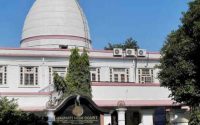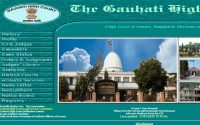Clerical error 22 years ago makes retired Assam teacher an NRC ‘outcast’
Source: .thehindu.com
Time has run out for a retired headmaster of an Assam government school for inclusion in the updated National Register of Citizens (NRC) to be published by July 31. The reason is the delay by officials — despite a court order — in starting the process for correcting a clerical error that snatched his voting rights 22 years ago.
The teacher, who declined to be named, was first enlisted in 1975 as a voter under the Lakhipur Assembly constituency in southern Assam’s Bengali-speaking Barak Valley. But the Election Commission of India (ECI) marked him a D-voter, or doubtful voter, in 1997.
Assam is the only state with D-voters. The case of a person thus tagged has to be forwarded by an Electoral Registration Officer (ERO) to the Superintendent of Police (Border) concerned for referring to a Foreigners’ Tribunal (FT) that decides whether or not a person is a genuine Indian citizen.
Assam is also the only State where the police has a border wing tasked with detecting and deporting foreigners or illegal immigrants. It was formed in 1962, initially to prevent infiltration by people of Pakistani origin.
Clerical error
A resident of Cachar district’s Banskandi, the 64-year-old teacher had in 2014 — two years before his retirement — written to the Border SP to know why he continued to be a D-voter. On March 22 that year, the SP’s office said there was no case against him in this regard.
He then approached the District Election Office (DEO) and the ERO of Lakhipur. On December 8, 2016, the State Election Commission (SEC) constituted an inquiry headed by an executive magistrate.
“Apart from a clerical mistake, no other reason is behind the ‘D’ marking against the name of Deb [the teacher],” Magistrate Anurag Phukan wrote with an observation underlining the lack of coordination between the DEO of Cachar and the EROs of seven Assembly constituencies within the jurisdiction of the former.
The case dragged before the ERO of Lakhipur who, in an order on June 1, 2018, said, “Deb is a genuine Indian citizen”, and that the steps to remove his name from the D-voter list would depend on when the “e-link is made available”.
The ERO’s order was based on a July 14, 2017, affidavit filed by the State’s Joint Chief Electoral Officer (JCEO) before the Gauhati High Court stating that the “tag of a D-voter from the electoral roll cannot be removed without an order from” the FT concerned.
Staring at the prospect of being left out of the NRC, the teacher approached the High Court, which directed the ERO of Lakhipur to forward his case to the Cachar SP within 60 days from the date of judgement (March 19). The SP was also asked to refer the matter to the FT within 30 days.
“…marking of a person as doubtful ‘D’ voter is only a temporary measure and therefore it cannot be continued for an indefinite period. A decision one way or the other has to be taken after marking the concerned person as a ‘D’ voter within a reasonable time. But such decisions can be taken only after obtaining the opinion of the Foreigners’ Tribunal,” the order by Justice Ujjal Bhuyan read.
No action yet
“The ERO of Lakhipur is sitting on the High Court’s order even after more than 90 days have passed. It is a gross violation of the court’s observation that cases related to people marked ‘D’ voters cannot be delayed indefinitely,” Dharmananda Deb of the Silchar Bar Association told The Hindu.
He added that the retired teacher is among 71 genuine Indian citizens in the Cachar district marked D-voters because of mistakes by others. “With the NRC authority having collected the names of all D-voters from the State Election Department, it is clear that these people and their descendants would not be included in the final NRC,” he said.
The NRC authority is scheduled to publish on June 26 a separate list of people excluded from the final list of citizens. This list will include the names of those who figured in the draft list published on June 30, 2018, but whose papers were later found to be ‘unacceptable’, besides D-voters, people declared foreigners by the FTs, and people with cases pending in the tribunals.



